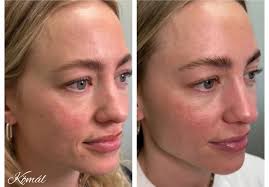Living with a chronic wound can be painful and emotionally draining, especially when healing seems slow or uncertain. That’s where a wound care specialist makes all the difference. With advanced training and a holistic approach, these experts oversee every stage of chronic wound management. Their goal isn’t just to heal the wound but to support your overall health and prevent future complications. Let’s explore how a wound care physician manages chronic wounds effectively.
Assessment and Diagnosis
During the initial consultation, a wound care specialist conducts a thorough evaluation of the patient’s condition. The goal is to identify the underlying causes of the chronic wound and contributing factors. This may include factors such as poor circulation, infection, or pressure on the wound.
- Comprehensive Patient History: The specialist begins with a detailed medical history, focusing on factors such as diabetes, vascular disease, and lifestyle habits that may affect healing. This helps create a foundation for an informed treatment plan.
- Wound Examination: The physical assessment includes evaluating the wound’s size, depth, location, and signs of infection. Diagnostic tools such as tissue cultures may also be used to rule out harmful bacteria or other pathogens.
- Diagnostic Imaging: When necessary, imaging techniques are employed to assess blood flow, detect abnormalities, or evaluate tissue and bone health.
By conducting these assessments, wound care physicians make sure that the root causes of the wound are identified and targeted during treatment.
Personalized Treatment Plans
Every chronic wound is unique, necessitating a tailored approach that aligns with each patient’s specific needs and health profile. For instance, a wound care doctor might focus on managing blood sugar levels in a diabetic patient to prevent further complications. A treatment plan may include advanced topical medications and nutritional guidelines to boost healing. They may also recommend pressure-relief strategies such as customized footwear or dressings. The specialist continuously monitors patient progress, frequently adjusting strategies to optimize outcomes. This personalized approach makes sure that every detail, from environmental conditions to the patient’s physiological responses, is taken into account for effective wound care.
Multidisciplinary Team
Chronic wound management often requires input from various healthcare disciplines. A wound care specialist coordinates this collaborative effort, leveraging diverse expertise to address the multifaceted needs of the patient. They may collaborate with:
- Vascular Surgeons: Address circulation issues.
- Endocrinologists: Manage diabetes-related challenges.
- Nutritionists: Support healing through tailored dietary plans.
- Physical Therapists: Provide rehabilitation techniques to enhance mobility and prevent future wounds.
By fostering teamwork, the wound care physician enables comprehensive care that goes beyond simply treating the wound to improve overall patient health.
Advanced Wound Care
Today’s wound care services integrate advanced technologies and methods to accelerate healing and reduce complications. Wound care physicians may use debridement. This involves the removal of dead or infected tissue using surgical tools or advanced nonsurgical techniques, which promote optimal healing conditions.
Treatments like Platelet-Rich Plasma (PRP) injections utilize the body’s natural healing mechanisms to stimulate tissue regeneration. Vacuum-assisted wound closure systems are another technique. It is used to create a controlled environment to facilitate wound healing by reducing swelling and promoting blood flow. Severe wounds often benefit from surgical interventions such as skin grafting or flap reconstruction, both of which require the expertise of a wound care physician. By utilizing these techniques, specialists can treat even the most complex cases.
Book an Appointment with a Wound Care Specialist Today
Chronic wounds need expert attention to heal effectively and prevent serious complications. Wound care specialists offer a holistic approach, combining detailed assessments and cutting-edge techniques to promote healing and improve quality of life. Book an appointment with a wound care physician today to explore tailored wound care services.



